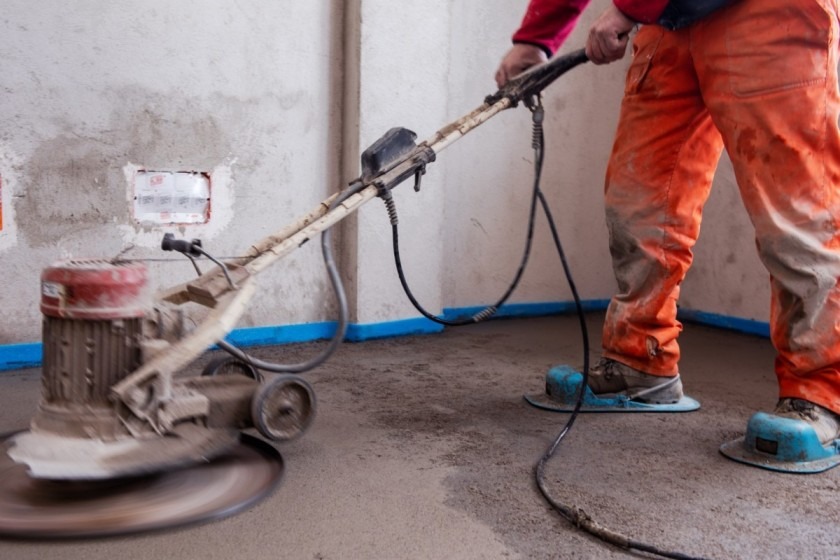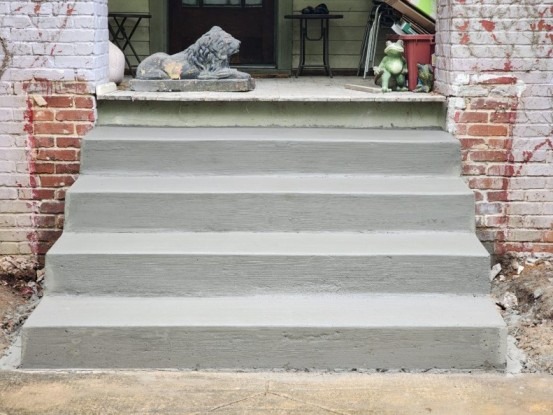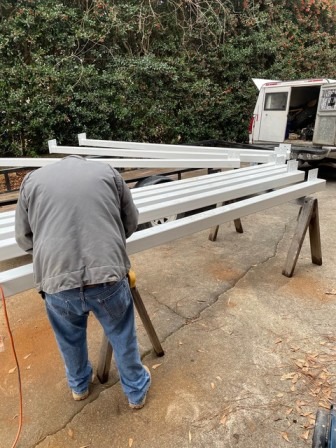What is the Best Method for Exterior Waterproofing?

In this article, you will learn the best practices in waterproofing the exterior of your house in Birmingham to protect your property from water damage and extend its life.
Among the most vital activities to be undertaken for maintaining the integrity and life of buildings, waterproofing plays a major role. Heavy rainfall combined with humid conditions makes exterior waterproofing a must for protection against water damages to property within Birmingham, AL. In this guide, we take a closer look at the best ways of exterior waterproofing, their benefits and applications, and where each is most effective. Be it a leaky foundation, damp walls, or water intrusion issues, being knowledgeable of these methods will better place you to make an informed decision regarding your home or business.
Understanding Exterior Waterproofing In Birmingham
Exterior waterproofing refers to the application of barriers and systems to hinder water from penetrating the exterior walls and foundation in a structure. It doesn’t deal with water problems once it has been able to penetrate, like interior waterproofing, but rather stops water before it can actually enter into the building.
Why Exterior Waterproofing Is Essential in Birmingham, AL
- The Birmingham climate presents the property owner with some unique challenges. The city experiences a relatively significant amount of rainfall throughout the year, apart from very high humidity levels. These factors alone create increased water infiltration along with the resulting damage if there are no proper waterproofing measures. Exterior waterproofing prevents:
- Foundation Damage: Water, over time, can continue to weaken structures and eventually crack the foundations, causing structural problems.
- Growth of Mold and Mildew: Excess moisture can foster mold and mildew, with associated indoor air-quality and health implications. Water intrusion may also affect finishes, insulation, and electrical systems. Poor landscape water management can result in erosion and can wash out landscaping and drainage systems.
Best External Waterproofing Methods In Birmingham
- 1. Excavation and Waterproofing Membrane
- Among the most effective methods of external waterproofing is excavation around the foundation followed by the use of waterproof membranes. This usually presents a physical barrier to the water in its path to the foundation walls.
- Mechanism
- Excavation: Involves the removal of existing soil along and around the foundation so that the foundation walls become revealed.
- Surface Preparation: Cleaning of the foundation wall is done, and in case of requirement, repaired. All cracks and defects are filled to have a smooth surface.
- Membrane Application: A waterproofing membrane is applied on the foundation walls. This can be a sheet membrane, liquid-applied membrane, or a combination of both.
- Backfill: After application and curing of the membrane, the soil is replaced and proper drainage provided to divert water away from the foundation.
- Benefits
- Long-Lasting Protection: It provides protection for a very long period against the seepage of water.
- Soil Erosion Prevention: If the installation of membranes is rightly done, it can help prevent soil erosion around the foundation.
- Versatility: Can be applied to various types of foundations and to many types of soils.
- Considerations
- Cost: This can be very expensive since excavation needs to be performed in addition to laying the membranes.
- Disruption: This entails heavy excavation that might interfere with landscaping and other outdoor features.
Exterior Drainage Systems
- Exterior waterproofing also requires the installation of drainage systems. Such systems must be installed to manage and divert water away from the foundation.
- Kinds of Exterior Drainage Systems
- French Drains: A French drain is basically a perforated pipe enclosed in a trench that is filled with gravel. It intercepts and channels water away from the foundation.
- Weeping Tiles: Similar to French drains, weeping tiles are installed around the foundation to collect water that seeps through the soil.
- Surface Drains: These are installed on the surface and collect runoff water from rain or irrigation systems.
- Benefits
- Efficient Water Management: Prevents pooling of water around the foundation.
- Flooding in the Basement: The basement gets flooded less as it channels water away from the foundation.
- Reduces Pressure on Foundation Walls: Through the regulation of water flow, drainage systems reduce the hydrostatic pressure on foundation walls.
- Considerations
- Maintenance: Drainage systems require regular maintenance so that they remain clear and can work right.
- Installation Costs: Depending on the complexity of the system installed, costs can vary.
- 3. Waterproof Coatings and Sealants
- Waterproof coatings and sealants are treated on the external sides of a building to act as a shield against moisture. These materials protect against water seepage into the wall by preventing their ways and channels of penetration.
- Types of Waterproof Coatings and Sealants
- Acrylic Coatings: Acrylic coatings are elastic, thus providing a waterproof membrane. They are suitable for many kinds of surfaces, such as masonry and concrete.
- The polyurethane sealants are very durable and enjoy very good waterproofing properties. They find broad application for joints and cracks.
- Bituminous Coatings: Bituminous coatings – based on asphalt-have a watertight seal. They find broad usage for foundation walls and other concrete surfaces.
Benefits
- Easy Application: Coatings and sealants are relatively easy to apply and can be done as a DIY project or by professionals.
- Cost-Effective: These products are generally less expensive than excavation and drainage systems.
- Flexibility: Many coatings and sealants are flexible and can accommodate slight movements in the building.
Considerations
- Durability: Some coatings and sealants may need to be reapplied over time, depending on environmental conditions and wear.
- Surface Preparation: Proper surface preparation is essential for effective adhesion and performance.
4. Sump Pumps
- Sump pumps are installed in the sump pit for collecting and pumping out the water that collects around the foundation. This itself is not a waterproofing method, but it has become an integral part of a waterproofing system from the exterior.
- How It Works
- Installation: A hole for the sump is dug in the lowest area of the basement or crawl space. It goes into that, with a pipe called a discharge pipe attached to carry the water, which has been pumped away from the foundation.
- Operation: As water builds up in the sump pit, the sump pump starts to pump it out through the discharge pipe.
- Benefits
- Avoids Flooding of the Basement: Controls and drains the collected water around the foundation.
- Automated Activity: Most modern sump pumps have sensors and other automatic controls for dependability.
- Affordable: Sump pumps are relatively inexpensive yet another layer of security.
- Considerations
- Maintenance: A very regular maintenance of the sump pump is needed to be continued. This involves checking the pump, cleaning the pit, and the discharge pipe clearing.
- Power dependence: Most sump pumps are electrically driven. In the event of a power outage, the system should have a backup source.
5. Grading and Landscaping
- Exterior waterproofing greatly combines with proper grading and landscaping around the foundation. In this way, you are able to reduce/eliminate any possible threat of water infiltration into your building because water is directed away from the foundation.
- How It Works
- Grading: The ground should be sloped to prevent it from being completely in contact with the foundation because that easily leads to pooling around it. Proper grading prevents water from pooling around the foundation and directs it towards drainage systems.
- Landscaping: Further control the water flow with landscaping. This can be achieved using garden beds, retaining walls, and drainage channels.
- Benefits
- Cost-effective: Grading and proper landscaping are comparatively low-cost methods as compared to other waterproofing methods.
- Acts as a Water Accumulation Preventive: It stops the possibility of water accumulation around the foundation of any structure.
- Enhances Beauty: Proper landscaping enhances the aesthetic beauty of your lawn.
- Considerations
- Maintenance: Grading and landscaping require regular maintenance to keep them working efficiently.
- Soil Erosion: If the grading is not well managed, it could result in soil erosion.
Choosing the Best Method for Your Property
- Each of the above methods may be selected for your property in Birmingham, AL, depending on a number of factors including:
- Property Type and Condition: Based on the type and condition of your property, one or the other method may be considered more suitable. For example, excavation and membrane installation are probably better suited for older homes that may have already started to show a few signs of foundation problems, while waterproof coatings are better applied in newer homes.
- Budget: Come up with a budget for waterproofing on the exterior. Excavation and drainage systems might be more expensive, whereas coatings and sealants would be within a more reasonable budget.
- Long-Term Goals: Consider your goals long-term for the property. Investing in comprehensive waterproofing solutions can protect for a very long period and potentially avoid issues in the future.
- Professional Tip: Due to your specific needs, you should have a professional waterproofing contractor for proper recommendations on the best method that fits your house. Definitely, with the help of a pro, one will be able to render useful insights and adequate installment.
EThese are the kinds of investments that one should consider, given that exterior waterproofing is crucial as far as property damage from water and long-term durability go. In Birmingham, AL, heavy rainfalls with high humidity create the potential for serious water damage, which calls for effective waterproofing. Learn about the different methods available, such as excavation and membranes, drainage systems, coatings and sealants, sump pumps, and grading and landscaping to help make an informed decision to protect your home or business.
For professional guidance and service on waterproofing matters, contact Foundation Pro Services, Birmingham, AL. At every aspect of the project, our team will be ready to answer your questions with a skillful group of professionals committed to providing waterproofing at the highest standards.
Frequently Asked Questions (FAQs) About Exterior Waterproofing in Birmingham
You might have several questions if you are one of those considering exterior waterproofing for your Birmingham home. The following are some of the most frequently asked ones:
1. What is exterior waterproofing?
Exterior waterproofing involves the application of a waterproof barrier to exterior walls for preventing water seepage into your foundation.
2. Why is it important?
It keeps your house safe from intrusion by water and resultant mold growth or structural damages.
3. How does the process work?
Professionals excavate around one’s foundation, apply a waterproof membrane, and ensure proper drainage to keep water away from your home.
That, of course, takes several days depending on the size and condition of your house. For more information, visit Foundation Pro Services at.
Contact Foundation Pro Services Today!
Foundation Pro Services will do everything we can to ensure your experience with us is excellent



